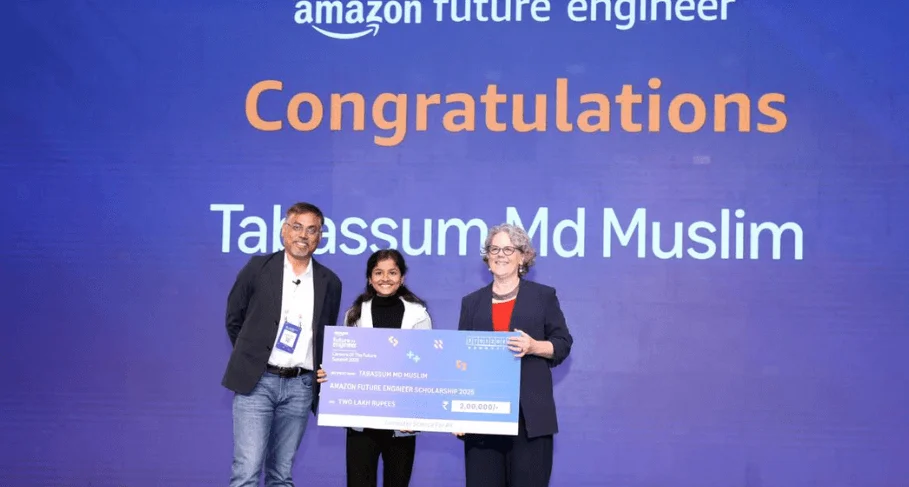In its inaugural edition of the Amazon Future Engineer programme’s ‘Careers of the Future’ Summit held in Delhi, Amazon has announced that the Amazon Future Engineer programme, launched in 2021, has successfully trained 3 million government school students and over 20,000 teachers across 272 districts in 8 Indian states. The initiative, which aims to close the gender gap in the technology sector, primarily targets students in grades six and up who live in tier 2 cities, providing them with engaging, multilingual learning materials in seven Indian languages: Hindi, English, Tamil, Telugu, Kannada, Oriya, and Marathi.
The programme, enhanced with advanced computer science modules, enables students to create sophisticated applications while deepening their understanding of fundamental AI concepts, coding principles, and the transformative power of technology in their lives through immersive project-based learning.
To further empower young women in technology, Amazon offers 500 merit-based scholarships worth INR 2 lakhs each over four years to female students pursuing undergraduate degrees in computer science, engineering or related fields. This initiative, aimed at bridging the gender gap in the tech industry, provides comprehensive support beyond financial aid. These include mentorship from Amazon employees, advanced personalized coding boot camps, and access to personal laptops to facilitate learning and career development. Since the launch of the Amazon Future Engineer programme in 2021, the company has offered over 1700 merit-based internships in India.
Speaking about the programme, Samir Kumar, Country Manager of Amazon India, said:
At Amazon, we are committed to bridging India’s digital divide through education. Our Amazon Future Engineer programme offers female computer science students 500 merit-based scholarships worth INR 2 lakhs each. We have trained 3 million government school students and 20,000 teachers across 8 states. We are nurturing the next generation of tech innovators by empowering India’s youth with future-ready skills. This investment in diverse, inclusive education is key to unlocking India’s potential and driving sustainable growth.
The ‘Careers of the Future’ Summit 2025, hosted by Amazon under the Amazon Future Engineer Program in Delhi today, brought together key public policy and industry leaders to discuss critical aspects of computer science education. The Summit explored the important role of computer science in preparing school children for future careers, identified best practices for scaling quality computer science education across the country, and examined the crucial roles of government, industry, and educational institutions in bridging the gap between education and career opportunities. Furthermore, the Summit highlighted the significance of self-paced learning platforms and online skill certifications in providing equitable access to learning opportunities for all.
Rajashri Nanasaheb Mane, a participant in the Computer Science Teacher Training initiative of the Amazon Future Engineer Programme, added:
The Amazon Future Engineer programme has been excellent for my students and me. It helps kids who don’t usually have these chances to learn how to code and solve problems using computers. I’ve learned new ways to teach computer science, and it’s been so rewarding to see my students get excited about coding and get better at it. This programme isn’t just about closing the gap between those who have technology and those who don’t. It’s about helping kids learn the necessary skills to become the next prominent inventors and creators.
Amazon launched the Amazon Future Engineer Programme in 2021 and has collaborated with several education-focused non-profit organizations, including Asha for Education, Quest Alliance, Leadership for Equity, Learning Links Foundation, Pi Jam Foundation, The American India Foundation, Code.org, Educational Initiatives, Peepul, The Innovation Story, NavGurukul, and the Foundation for Excellence, to engage students and provide them with critical learning experiences. Through its extensive partner network, the company has also worked with key government bodies, policymakers, teachers, and school administrators in Delhi, Haryana, Uttar Pradesh, Bihar, Madhya Pradesh, West Bengal, Maharashtra, Karnataka, Odisha, Tamil Nadu, and Telangana to implement the AFE programme.
